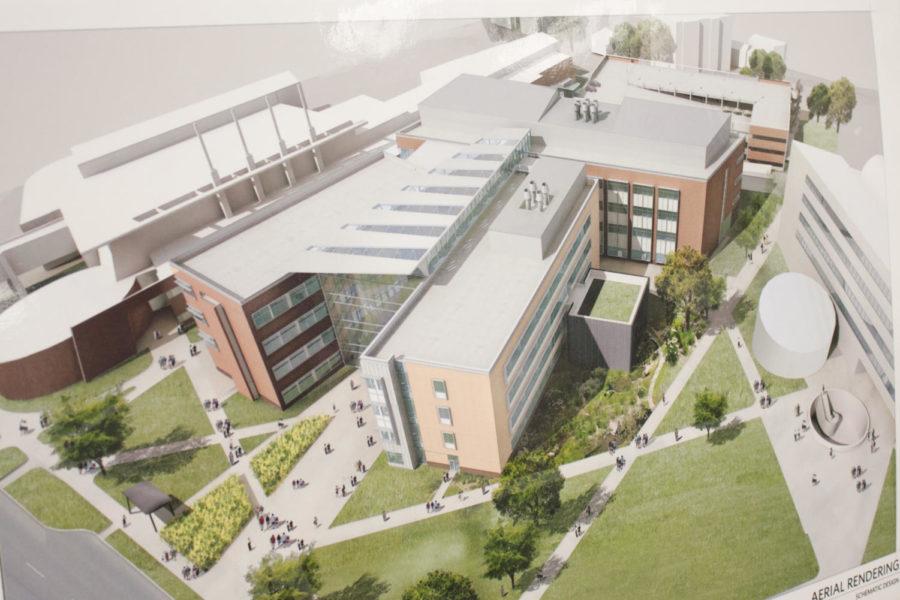Agricultural and biosystems engineering programs rank number six
Photo: Andrew Clawson/Iowa State Daily
Jay Harmon, professor of agricultural and biosystems engineering, shows plans for the expansion of the biorenewables building Tuesday, March 6, at Davidson Hall.
April 2, 2013
ISU agricultural and biosystems engineering programs are ranked number six in the U.S. News and World Report in collegiate graduate programs.
David Holger, associate provost for academic programs and dean of the graduate college, said that for graduate program rankings, reputation is the main component to achieving the rankings.
The reputational factor comes into effect when determining the differences in coursework and program content for students. Making sure courses are up to date and connected with what is going on in the field of study is important to the reputation of a program.
“A measure of that I think, when I think about other graduate programs, is when I hear that somebody introduced something new or made a change because of some trend in the discipline. That makes me think that’s probably a better program because they’re paying attention to what is going on,” Holger said.
Steven Freeman, associate director in agricultural and biosystems engineering and Center for Excellence in Learn and Teach, said there is no set course work for the students due to the diversity of each department. Each individual field of study is designed to meet the needs of the student.
Agricultural business companies, such as John Deere, tend to hire graduate ISU students. Biosystems engineering students tend to go to work for agronomy business companies to make agricultural chemicals, go to seed companies or companies that are doing research in fields such as grain handling, Holger said.
Job placement is tracked at least six months prior to graduation, which tends to show an 80 percent job retention rate.
The rankings given to Iowa State in agricultural and biosystem engineering will remain stable for a number of years, Holger said. The reputational aspect to the rankings changes slowly, thus indicating that the programs ranked highly this year have been ranked well on the list for a numbers of years.
Chemistry, meat science and other engineering programs are top competitor graduate programs at Iowa State against agricultural and biosystems engineering. Holger said Iowa State also competes with Purdue, Minnesota and Illinois for graduate students’ admission in engineering, agricultural and life sciences and biological sciences.
The graduate programs’ faculty is a key component to the success of the programs, Freeman said.
“We have the leading faculty in the country that graduate students want to come here to work with,” Freeman said.
The new location for the Agricultural and Biosystems Engineering is in the process of being built on the west side of campus in between Howe Hall and Biorenewables Institute.
The department is moving locations in fall 2014. The updated facilities should help ratings of the departments, Freeman said.

















